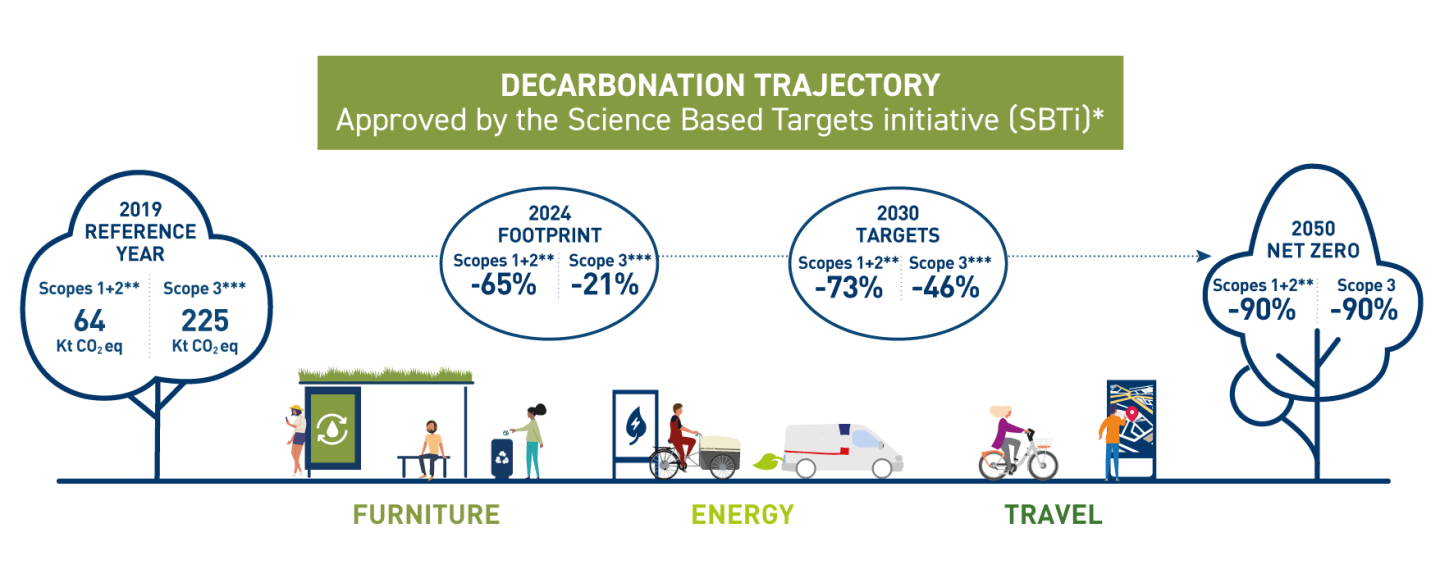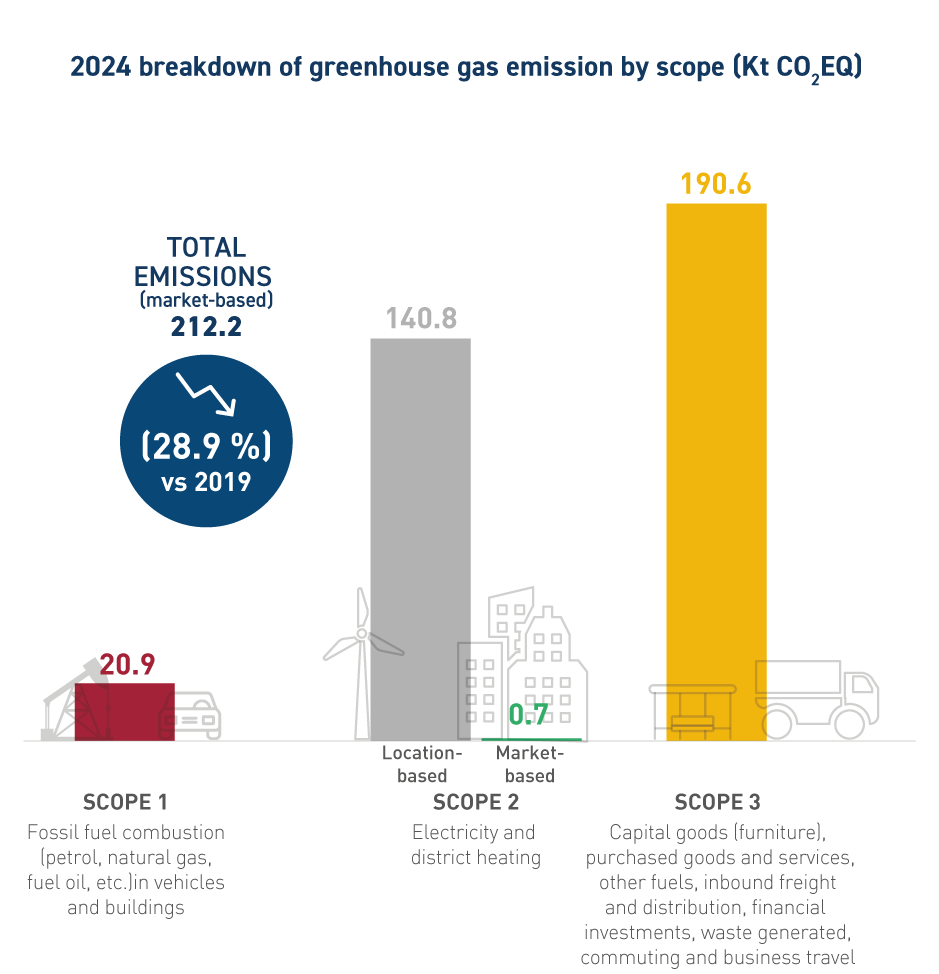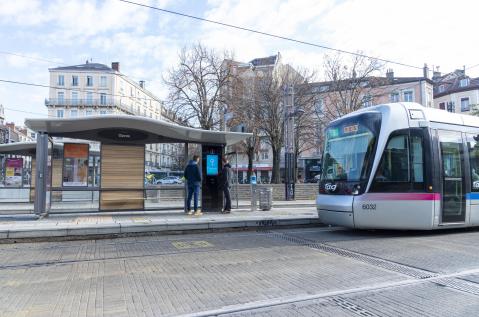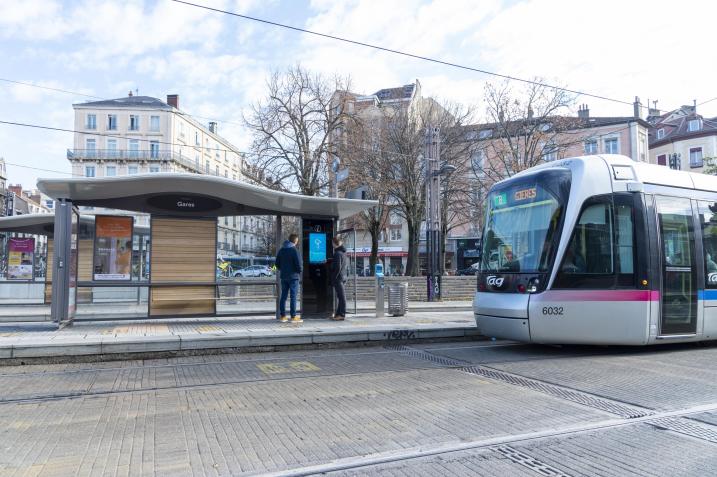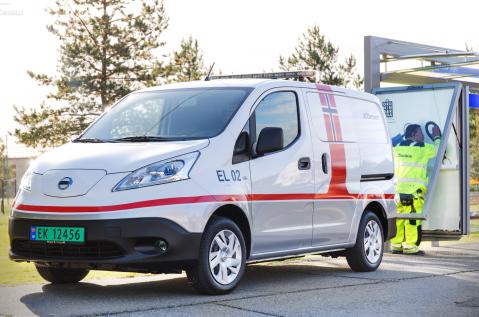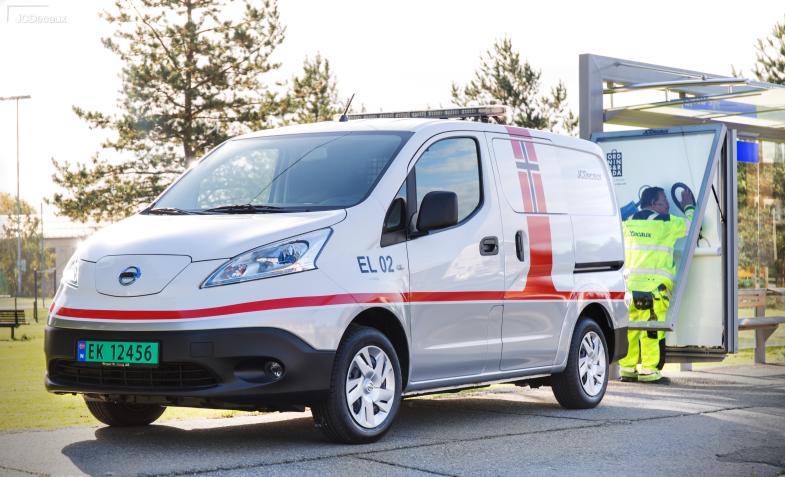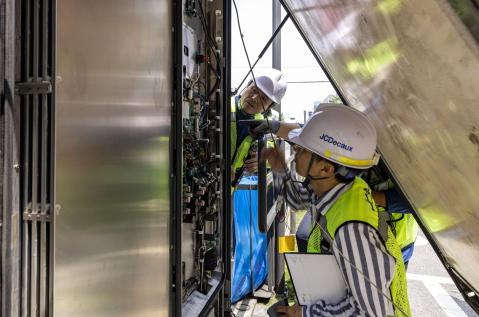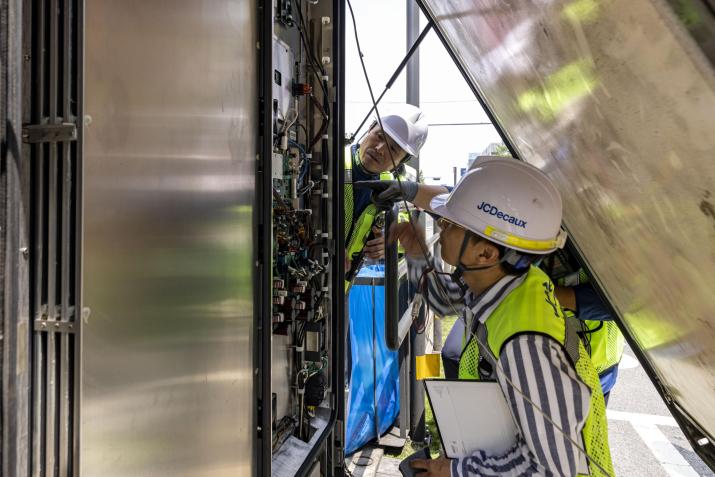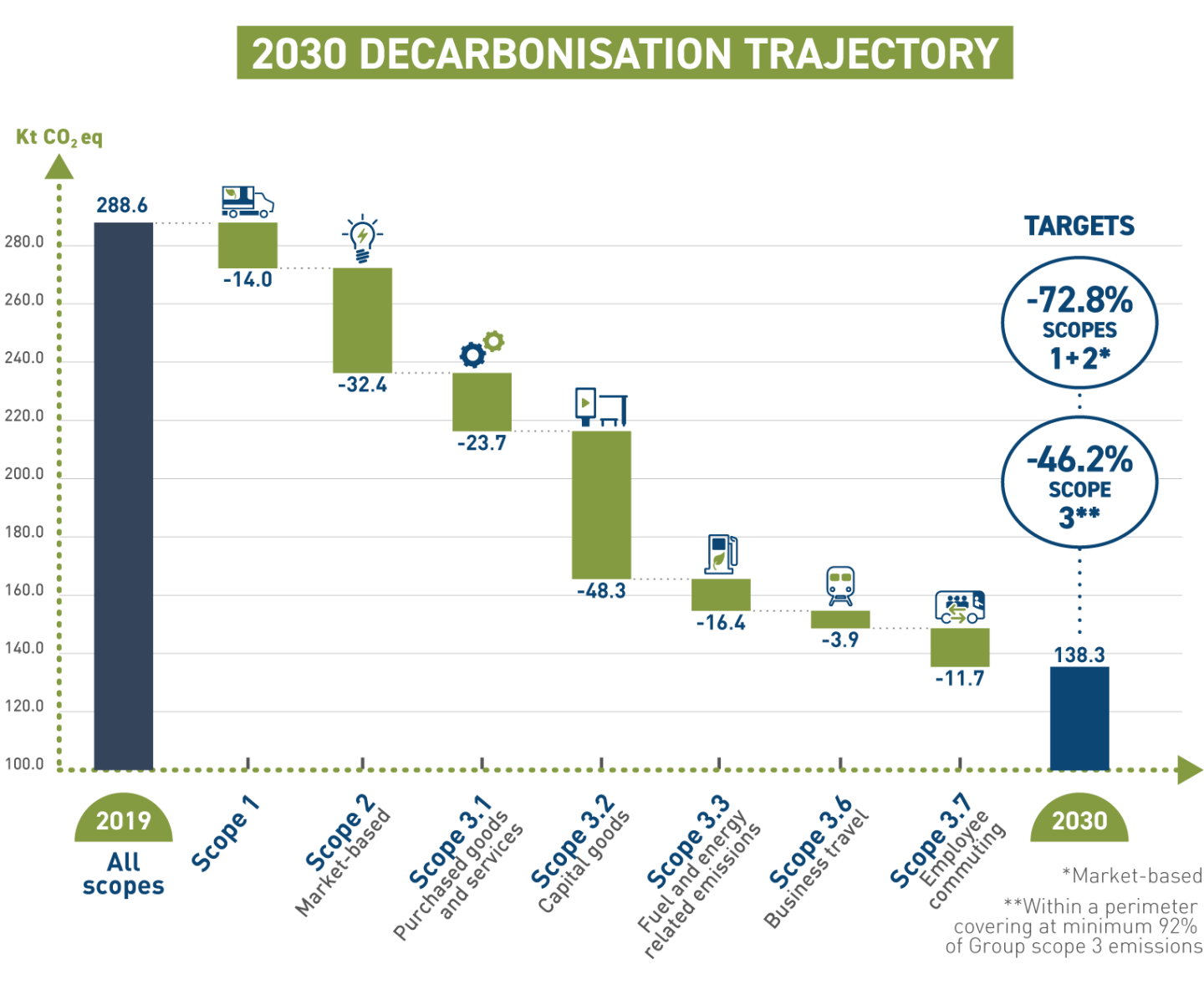Faced with various climate challenges, JCDecaux is firmly committed to taking concrete measures to mitigate or adapt to climate change. Aware of its responsibility as a global player in outdoor advertising, JCDecaux has developed ambitious and robust climate policies, integrated at the core of its business strategy.
In June 2023, JCDecaux unveiled its Climate Strategy, including targets to continue reducing its carbon footprint across its entire value chain. Based on three principles – Measure, Reduce and Contribute beyond the Group's value chain, the strategy aims for Net Zero Carbon by 2050 (scopes 1, 2 and 3). To achieve this, JCDecaux defined a roadmap based on the Science-Based Targets Initiative (SBTi) that is backed up by scientific data.
In June 2024, SBTi reviewed and approved JCDecaux’s carbon reduction targets.
The SBTi validation team confirmed that the near-term objectives for scopes 1 and 2 are in line with a trajectory of 1.5°C, and that the long-term objectives for scopes 1, 2 and 3 are aligned with mitigation trajectories of 1.5° C to achieve Net Zero Carbon by 2050.
- Overall Net-Zero Target:
JCDecaux SE commits to reach net-zero GHG emissions across the value chain by 2050.
- Near-Term Targets:
- JCDecaux SE commits to reduce absolute scope 1 and 2 GHG emissions by 72.8% by 2030 from a 2019 base year.
- JCDecaux SE also commits to continue active annual sourcing of 100% renewable electricity through to 2030.
JCDecaux SE further commits to reduce absolute scope 3 GHG emissions from purchased goods and services, capital goods, fuel and energy related activities, business travel and employee commuting by 46.2% within the same timeframe.
- JCDecaux SE commits to reduce absolute scope 1 and 2 GHG emissions by 72.8% by 2030 from a 2019 base year.
- Long-Term Targets:
- JCDecaux SE commits to reduce absolute scope 1, 2 and 3 GHG emissions by 90% by 2050 from a 2019 base year.
- JCDecaux SE also commits to continue active annual sourcing of 100% renewable electricity through to 2050.
- JCDecaux SE commits to reduce absolute scope 1, 2 and 3 GHG emissions by 90% by 2050 from a 2019 base year.
